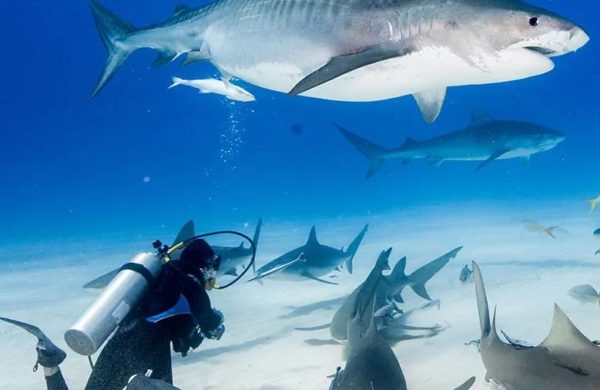
There’s nothing like the sense of achievement that comes with your first scuba diving certification. After several days of learning new skills, overcoming difficulties and performing tasks in open water, you’re finally free to simply enjoy the underwater world. What was once your classroom becomes your playground, and you become part of a worldwide community that shares the same passion for the ocean. However, many new divers lose momentum after certifying, eventually allowing their qualification to stagnate and their dive equipment to dry out. In this article, we take a look at a few simple ways to keep your newfound love for diving alive.
Continue Your Education
The easiest way to replicate that initial drive and sense of achievement is to continue your diving education. The PADI Open Water Diver certification (or the equivalent with another training agency) is only the first rung on a tall ladder of possibilities. By enrolling on a PADI Advanced Open Water Diver course, for example, you can increase your maximum depth limit by 12 meters/ 40 feet – opening up a whole new world of exciting dive sites. Adventure and Specialty dive courses help to direct your newfound passion, whether you end up being obsessed with underwater photography or hooked on wreck diving. Ultimately, you could even progress to a professional level, thereby turning your hobby into a life-changing career.
Join a Dive Club – Like the Salty Dogs at SaltyDogs.com
Like most things, diving is an experience that’s better shared. Whether you live on the coast or inland, you should be able to find a dive club near you. Joining a club puts you in contact with other like-minded people – people who will share your excitement about diving and encourage it, people who can recommend dive sites, help organize group trips or get special rates on gear and courses. With this kind of support behind you, it’s less likely that your new passion will be swept aside by the pressures and commitments of everyday life. Now, instead of having to choose between a weekend spent scuba diving or a weekend with your friends, you can combine the two. If you don’t have a local dive club, take the initiative and start one.
Brush up on Your Species ID
For most divers, one of the highlights of the entry level course is seeing aquatic life for the first time. You can build upon that thrill by brushing up on your basic identification skills – so that you know how to tell an angelfish from a butterflyfish, or how to distinguish a squid from a cuttlefish. Learning these differences is easy with the aid of a local fish ID book or app, and with a little practice, you will soon be able to recognize many of the species that you share your local dive sites with. Taking a keener interest in the life around you increases the pleasure you get out of each dive by teaching you to pay closer attention to the wonder of the underwater world. Each new sighting is a bonus, adding an extra dimension to your experience.
Find Your Diving Specialty
Your entry level course gives you the basic skills you need to survive underwater – but there’s much more to diving than that. One of the best ways to keep the momentum going is to find out which aspects of diving interest you the most. For example, do you love diving for its innate sense of adventure and discovery? Perhaps you should focus on wreck diving, or start thinking about enrolling on a tec diving course. Is it the wildlife that gets you excited? Consider underwater photography, or perhaps use your new qualification to volunteer on a marine conservation project. If you loved the excitement of mastering a new skill, there are hundreds more to learn – from search and recovery techniques to peak performance buoyancy.
Travel Often
Like diving, travel is all about new experiences. Each new destination offers the promise of new sites to explore, new wildlife to encounter and new people to meet along the way. Start making a bucket list of dream destinations and experiences, from muck diving in Indonesia to shark diving in South Africa. If you’re on a budget or have limited time off, you don’t have to travel far; even a long weekend to a new dive site on your nearest coast can give you the change of scene you need to keep things interesting. Dive holidays can be adapted to suit your needs. Liveaboards offer maximum time in the water and the chance to meet other divers; while land-based holidays have the potential to keep non-diving friends and family happy as well.
– DeeperBlue.com



